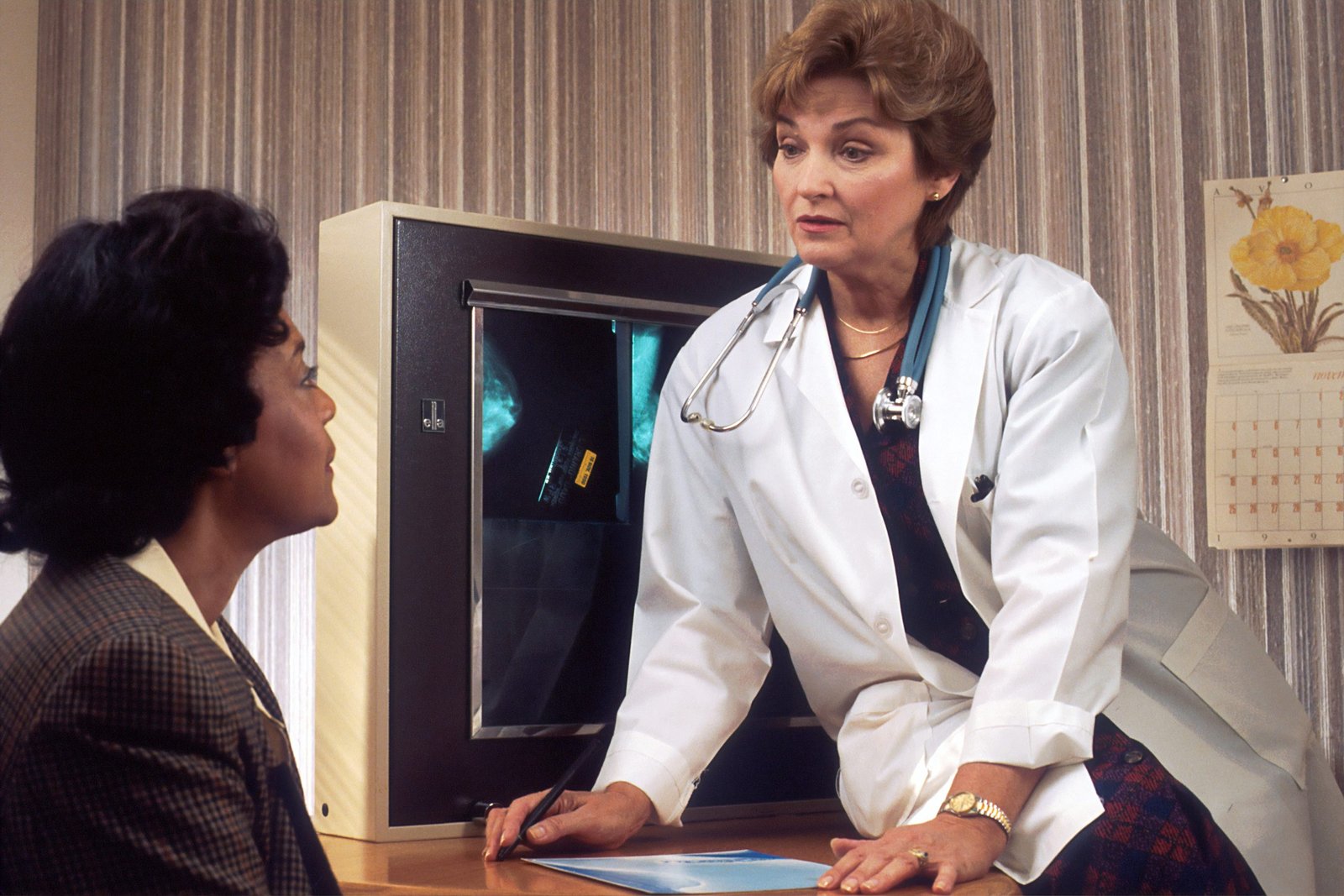Have you ever wondered why suicide, a deeply personal tragedy, has become a leading cause of death in the United States, affecting people of all ages, economic statuses, social backgrounds, races, and ethnicities?
According to Forbes, this silent epidemic spares no one, with risk factors varying significantly by age, gender, and ethnic background. It’s time we delve into the underlying causes and work towards effective prevention strategies tailored to each demographic.
Jonathan George, a best-selling author from Dallas, is an expert in personal branding, having developed some of the top celebrity brands and managed clients with a collective online following of over 150 million. He believes that personal branding plays a crucial role in empowering individuals to overcome mental health challenges.

Personal branding is about understanding and leveraging one’s unique qualities and values to create an authentic and empowering online presence. By doing so, individuals can navigate the pressures of social media more effectively, fostering a healthier self-image and deeper connections with others.
Jonathan George is the CEO of Unleash Your Rockstar® | Personal Brand Agency. His celebrity clients have amassed over 150 million online followers leading him to be dubbed “The Human Hitmaker.” As a specialist in positioning, packaging, and promoting authentic personal brands for success, he collaborates with Fortune 500 companies and travels the world as a sought-after speaker on the subject. Jonathan presents a groundbreaking solution to address the ever-growing mental health crisis. His approach is highly effective in combatting the daily struggles that often lead many to the therapist’s couch.
Understanding the imperative need for every individual to cultivate and maintain a robust personal brand, particularly in the digital age, he authored the #1 International bestseller, “Unleash Your Rockstar | The Power of You Through Personal Branding.” In it, he guides you on a transformational journey to recognize your unique value and worth, position it to stand out, and package all that you are to succeed in both your personal and professional life. He believes, “Success is 20% talent. The other 80% is how you brand that talent to shine.”
We had the opportunity to interview Jonathan about his upbringing, becoming his own boss, writing a book, rues for success, and much more.
How was it growing up in Dallas?
Growing up in Dallas was both a blessing and a challenge. I have such deep love for the people—the warmth, the strong sense of community, and the rich culture that runs through it. Even though I’ve lived in Los Angeles for over two decades, I’ll always be a Texas boy at heart. My connection to Dallas and the people there is undeniable, and I still hold on to the values I grew up with.
But the very things that made Dallas great—the good morals, strong upbringings, and tight-knit community—also made it difficult for someone like me, who didn’t quite fit the mold. As a preacher’s kid, there were expectations to follow a certain path, and being gay clashed with those traditional norms. I was also a hyper-creative kid who preferred singing and performing over sports, which, in a sports-driven city, often made me a target for brutal teasing. Combined with the spiritual abuse I endured, these experiences left me feeling like I was never good enough—a belief that took me many years to unlearn.
Ironically, even though my friends and family fought for me and stood up for me, the fear of disappointing the people I loved so dearly lingered. Despite their support, I constantly felt like I wasn’t enough, and that feeling stayed with me for much of my life before I finally began to heal.
Still, I wouldn’t trade my roots for anything. It was that blend of love and challenge that shaped me. It gave me the strength to push through the difficulties and ultimately stand tall in who I am. Dallas, for all its complexity, remains a part of my identity. I love it, and I am who I am because of it.
What got you into personal branding?
I got my start in the church, where my family are all pastors. It was a haven for creativity, sharing your story, being influential in people’s lives, and personal and professional development. As a singer, I had to brand myself to get booked in other churches. After graduating from college, I had to rebrand myself to secure spots on bigger stages that were outside of church. When I moved to Los Angeles, I had to step up my game because the competition was intense. That’s how I landed on Ed McMahon’s Next Big Star, where I earned the title of Grand Champion.
I had a record deal on the table, but it was quickly retracted when they found out that I was gay. This was the early 2000s, and the times were so different. My team even tried to get me married to a girl and change my image. I lost myself in the process. I didn’t know my identity, my value proposition in the world, or how to show up authentically despite my accolades and talents.
I struggled with anxiety, depression, and suicidal thoughts, feeling like no matter how talented or accomplished I was, it was never enough. The haunting voice from my past kept resurfacing, pulling me into a dark place—something that was especially difficult for me as a naturally positive person. However, I refused to hide who I was and eventually quit singing. I went on a journey to discover myself. During that period, I started developing young singers, vowing to help them rock their authentic selves. I didn’t even know it was on the cusp of personal branding back then—we called it artist development.
When social media came out, it completely changed my perspective on what I now recognize as personal branding. I realized that I had been building people’s brands based on what they were doing rather than their being. This approach led to mental health issues when someone wanted to switch from singing to another profession, creating confusion and identity struggles. Now, I build personal brands based on who someone is, which gives them the freedom to utilize all aspects of themselves to scale whatever they want to do next. Today, my clients have over 150 million online followers by rocking their authentic selves.
When did you think of the idea for Unleash Your Rockstar?
After running four franchises across the US that developed and launched some of the top talent in the industry, I was feeling burnt out, exhausted, and creatively drained. So, in 2017, I signed up for a mastermind event to renew my mind and find inspiration. During that event, I experienced a profound transformation. I reconnected with who I was and realized how much I had been avoiding the things I felt called to do. I also discovered that the fear of not feeling good enough had been holding me back from reaching my full potential. Despite my success, I had been playing small to avoid judgment.
With this new self-realization and a fresh vision for my future, I decided to retire from the entertainment world. I wanted to utilize everything I had developed to create stars in the entertainment industry to help Millennials and Gen Z build their self-identity, self-confidence, and self-worth. In an era where mental health issues are at an all-time high due to social media, I knew I had to step in. Having developed rockstars in entertainment, I realized I could help people become rockstars in their own lives.
A rockstar is someone with unabashed confidence—someone who embraces every aspect of themselves, both the good and the bad, because together they make up who they are. I believe we all have this amazing potential; we just need the tools and permission to unleash the rockstar within.
Who was your first big client?
My first big client was Kelci Paige. I developed her entire project, applying everything I had learned from my own experiences to position, package, and promote her. She landed on a show called America’s Most Talented Kids, where she was a semifinalist. Shortly after, with the rise of MySpace, we achieved incredible success—her music held the number one spot on the country charts for over a year, ahead of even Garth Brooks. She amassed millions of fans during that time. I learned a tremendous amount from that process and built many strong industry relationships that continue to thrive today.
Who was your first celebrity client, if you can share?
The term “celebrity” drives me nuts because it’s so fickle. A person can achieve something big one day, but the next day they’re back to auditioning for the next job. Maintaining that status feels like having to win Gold every day at the Olympics. Unless you’re one of the lucky few who hits mega status, you have to continually fight not to be forgotten, and even then, it can be a struggle. Because of this, I train my clients to remove the word “celebrity” and its implications from their vocabulary and mindset. Instead, I emphasize that we all have the potential to be “celebrities” in our own lives and communities, by making a meaningful impact and shining in our unique ways.
That said, due to NDAs, I can’t always share the names of certain stars I’ve worked with. But my first “celebrity” client was Kelci Paige. Since then, I’ve worked with hundreds who achieved significant success. Many of those had their own shows on Disney and Nickelodeon. I also have clients who are currently number one on the country charts, Emmy winners, movie stars, and influencers with millions of followers—some of whom I began working with twenty years ago. I also have many clients who are finalists and winners on reality shows like American Idol and America’s Got Talent.
The reality is that becoming and maintaining what someone deems as a “celebrity” can take a long time to develop. Additionally, many of the stars I worked with for years have left the entertainment world and moved into different career paths, while others are still making their dreams a reality. The key is recognizing that our true impact and significance are defined by how we use our unique gifts to influence and inspire those around us, not by the elusive and often short-lived status of “celebrity”.
What is personal branding, and why does it play a crucial role in overcoming mental health challenges?
First and foremost, it’s essential to understand that personal branding is not about logos, fonts, or carefully curated photos on social media. It isn’t something reserved for celebrities, athletes, or high-profile individuals. And it certainly isn’t just about what someone is “doing” or “selling.”
Whether you realize it or not, we all project a personal brand. It is the authentic packaging of who you truly are—your essence, values, passions, and unique qualities. It is also how others experience us.
According to Psychology Today, 85% of people struggle with knowing their self-worth. This struggle leads to insecurities, fears, and self-doubt, which can prevent you from stepping into your full potential, achieving your dreams, and living with purpose. Such a cycle can contribute to mental health challenges like anxiety, depression, and suicidal ideation.
When you understand and embrace your personal brand, you gain clarity on what you need to feel fulfilled, recognize your inherent worth, and confidently own your authenticity. This shift transforms your presence from being ordinary to truly extraordinary. It enables you to move from merely surviving to thriving. By focusing on who you are and projecting that genuine self into every aspect of your life, personal branding can significantly enhance your mental well-being and overall success.

Social media is the widest used method of information sharing and communication, do you think that this will change or only evolve? How are social media and smartphones impacting our confidence and mental health?
Social media will continue to evolve as technology advances, but its fundamental role in communication and information sharing will remain significant. Despite their potential, social media and smartphones significantly impact our confidence and mental health in complex ways. On one hand, they contribute to issues such as low self-esteem and anxiety through constant comparison with idealized portrayals of others’ lives and the pursuit of validation via likes and comments. We often find ourselves checking for responses to network, find jobs, or date, which can exacerbate feelings of inadequacy and stress. Additionally, excessive use can lead to addiction-like behaviors, disrupting sleep and diminishing our true connections with ourselves and others.
On the positive side, these tools offer valuable support networks and access to mental health resources, helping people find communities and maintain connections. Understanding your personal brand is crucial because it empowers you to use social media more intentionally and authentically. By having a clear sense of your personal brand, you can navigate social media with a stronger sense of self, reducing the impact of negative comparisons and enhancing your overall well-being. This clarity helps you engage in ways that align with your true self, allowing you to build meaningful connections and maintain a balanced approach to your digital life.
How can we customize prevention to different age, gender, and ethnic groups?
Rather than tailoring prevention strategies based on external attributes like age, gender, or ethnicity, my approach emphasizes the packaging of personal authenticity, confidence, and self-worth. This method dismantles barriers and biases that often arise from these categories, fostering an environment where personal branding is about one’s true identity and unique contributions. This not only empowers individuals to overcome societal limitations but also ensures that they can engage with their audiences and communities in a way that is genuine, impactful, and intentional. In doing so, we enable people from all backgrounds to showcase their strengths and make meaningful connections to themselves and others, effectively leveling the playing field and promoting inclusivity.
How can community awareness reduce mental health stigma?
Community awareness plays a crucial role in reducing mental health stigma by fostering understanding and empathy across all demographics. To effectively address mental health issues, we must recognize their root causes, which extend beyond social media and specific age groups. Factors such as the political climate, financial pressures, and the constant demands of our busy lives contribute to widespread mental health challenges, often leaving individuals feeling burnt out, overwhelmed, and disconnected.
The solution to reducing stigma may be simpler than we think. My goal is to encourage people to streamline their approach, enhance self-awareness, focus on their impact on those around them, and approach situations with understanding. This straightforward mindset promotes a culture of support and encourages open conversations, ultimately reducing stigma.
How do you prefer receiving feedback?
I prefer receiving straightforward and honest feedback. Integrity, which includes honesty, is a core value for me. I trust feedback that is truthful and direct, but it also needs to be thoughtful and aimed at fostering my growth. I want feedback to lead to outcomes that benefit everyone involved.
Today’s culture often favors quick, unthoughtful comments, especially on social media, which has led to a loss of the art of meaningful communication. I challenge people to be more considerate in their feedback and responses to help us all evolve together.
What does success mean to you? What are your rules for success?
Success, to me, means achieving a deep sense of fulfillment. It’s about aligning with our true selves and finding balance across all areas of life. In my book, I define success through four essential pillars: mind, body, soul, and finances.
To be truly successful, we must address and nurture each of these pillars. When one pillar is out of alignment, it can disrupt the others. For instance, if you’re struggling with finances, it can quickly throw your mental and physical well-being out of balance. The mind involves mental clarity, mindset, and growth; the body reflects health and vitality; the soul represents our inner peace, connection, and purpose; and finances encompass our security and stability. By evaluating and fulfilling our needs in each of these areas, we create a holistic and enduring sense of success that resonates deeply and sustainably.
What role does authenticity play in personal branding, particularly concerning mental health and building confidence?
Authenticity is crucial in personal branding as it directly impacts mental health and confidence. When individuals embrace and express their true selves, they build genuine connections and foster a sense of self-acceptance. This authenticity helps reduce the internal conflict that often arises from trying to present a façade or meet external expectations, which can contribute to stress and anxiety.
In terms of building confidence, authenticity allows individuals to focus on their unique strengths and values rather than comparing themselves to others. This self-assuredness promotes mental well-being by reducing self-doubt and encouraging a more positive self-image. By being true to oneself, people can create a personal brand that aligns with their real identity, leading to greater fulfillment and resilience in both personal and professional contexts.
The Fox Magazine is all about inspiration, what/who inspires you the most?
My father was my greatest mentor and inspiration in who I am today. But, I am also daily inspired by my clients who, despite their circumstances and setbacks, make no excuses. They eliminate “try” from their vocabulary and simply take action. Their excitement for growth and commitment to becoming the best versions of themselves is truly motivating. They embrace and share their stories with the world to make a greater impact. I admire their ability to show up purposefully and positively, even when they don’t have all the answers. This resilience and authenticity is what I call #rockstarstatus.
What’s something people would be surprised to learn about you?
I’m known for being an open book, and I am sitting her laughing at how I probably overshare. But unless you are in my inner circle, you probably don’t know that I’m an avid gardener and a total animal lover. While most people follow influencers, I’m all about animal, gardening, and kid channels. I’m also a Netflix binge-watcher, spending evenings with my partner, Edgar (we’ve been together for 18 years!), and our three dogs: Jett, Bandit, and Luca. We dream of one day running a rescue farm called Sugar Baby Ranch, named after my first dog who truly changed my world.

What is your favorite or original innovation-related motto, quote or words to live by?
My favorite motto, and one that fuels my approach to personal branding, is: “To become, you must be.” I started sharing this with young talent who struggled with being confident in their identity. It’s not about faking it til you make it; it’s about fully immersing yourself in your potential. You must see it, smell it, taste it, and celebrate in your mind first. This principle is at the core of personal branding—authentically owning your true self.
“You might have to mock it til you rock it, but by embracing this mindset, you can truly transform and step into the spotlight to be the ROCKSTAR you were born to be.”






